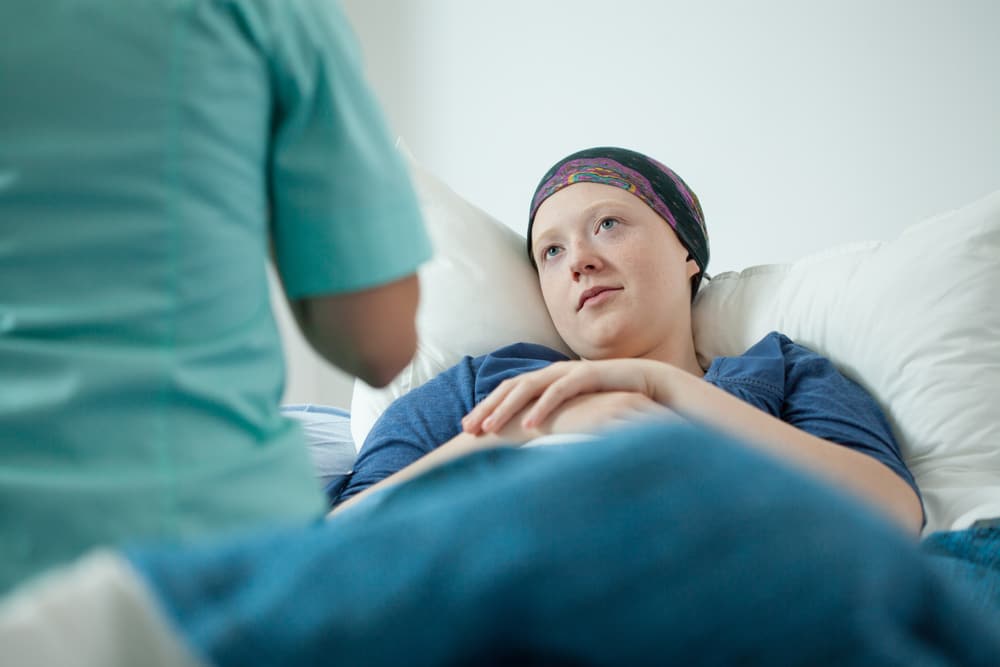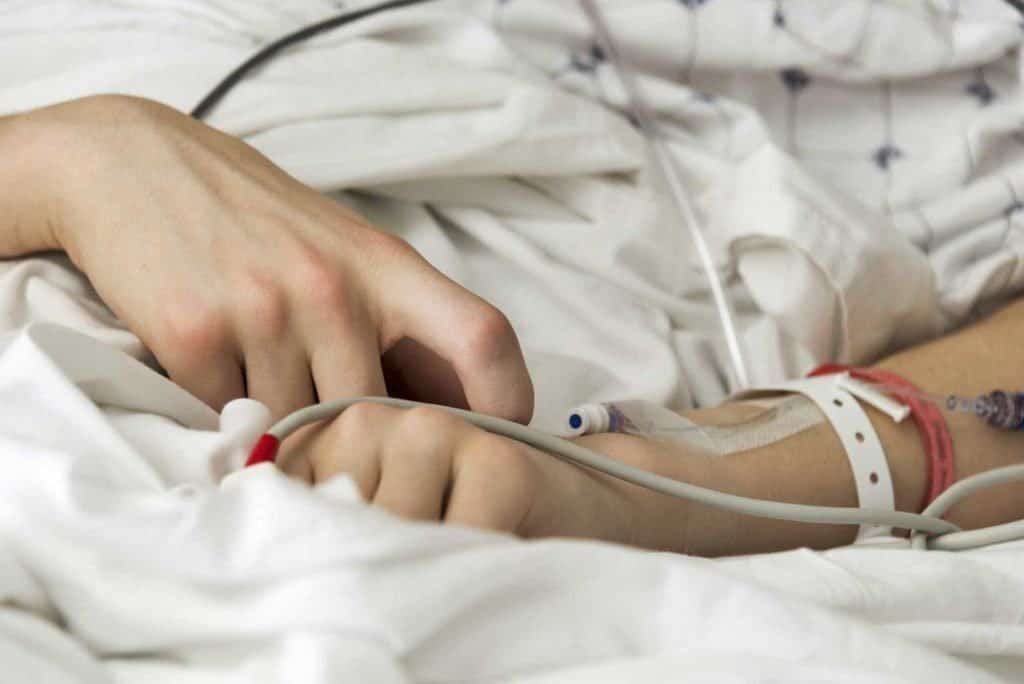Contents:
- Medical Video: What To Say (and Not Say) When Someone Dies or Suffers a Tragedy
- Sentences that should not be pronounced in cancer patients
- 1. "You will be fine."
- 2. "You look different."
- 3. "My friend also has the same cancer as you."
- 4. "You are really strong, huh!"
- 5. "I know your feelings."
Medical Video: What To Say (and Not Say) When Someone Dies or Suffers a Tragedy
Cancer patients sometimes experience periods of loss, sadness, stress, and so on. This makes him more sensitive. This feeling can arise because people who have cancer are not ready to receive a diagnosis from a doctor or are not ready to undergo various treatments that not only drain the physical, energy, time, or cost.
At times like this, you as the closest person really has a very important role to encourage cancer patients. However, you also need to be sensitive. What kind of support and enthusiasm does the patient need? You certainly have to show sympathy, but you should be careful in choosing words. Even though your intentions are actually good, one can hurt your loved one's heart and make him even sadder.
What should not be said to a cancer patient? Here are five of the most frequently pronounced sentences that turn out to make someone discouraged.
Sentences that should not be pronounced in cancer patients
1. "You will be fine."
You might say this because you want people with cancer to be fine. Even though no one knows how to proceed with the treatment of this disease. Nobody knows or has control over what happens in the course of a serious illness like this. Pretending everything will be fine just sounds like you are underestimating the condition that is being experienced by a patient.
Your intentions are good, which is to invite patients to remain optimistic. However, there will be times when the patient feels worse and thinks, "Who is everyone going to be all right?" Therefore, it is better to give your support by saying, "I will accompany you to fight this disease, whatever happens "
2. "You look different."
People who have cancer will indeed change physically. Without the need to be reminded, people with cancer realize how much weight they have lost, hair that has disappeared little by little, or how pale it looks.
According toUC Cancer Institutepeople who have cancer often feel sad or feel worse with changes in their appearance, so you don't need to show or say it again. Because it only makes them feel increasingly sad and lament the change.
If you want to give support, it's better to accompany your loved ones to shop for new clothes, for example. You can help him choose the color and model of clothes that won't make him look too pale or thin.
3. "My friend also has the same cancer as you."
Just because you have acquaintances or friends who have also been diagnosed with the same cancer does not mean you have the right to lecture patients about the disease. For example, by saying, "Yesterday my friend used a new drug that works, you know! You also have to try the treatment. "
First, people who have cancer don't always want to know stories about other people who experience the same thing. Second, every cancer is different. Although the type is the same, but each person's body is different so the nature of the cancer experienced will also vary. Only doctors and expert teams handle patients directly who can determine what steps should be taken by the patient.
Instead of telling other people, it's better to help your loved one look for a community or network of cancer patients so he gets the right place and support. If you do have acquaintances with similar conditions, you should offer patients like this, "My friend has been diagnosed with breast cancer too. If you want, I'll give you the contact for you so you can chat with him. "
4. "You are really strong, huh!"
This sentence seems to be expressed to praise someone's struggle. However, unwittingly this speech contains demands for cancer patients to always be strong and firm against their illness. As a result, when the patient is feeling completely helpless, he will feel a failure to maintain his strength. He will fear being labeled weak, unlike other cancer fighters.
Therefore, you should spend more time with your patient and often ask him about what he is feeling or thinking. This is far more helpful than just praising the patient with the sentence.
You also have to remind patients that feeling sad, hopeless, and weak is human, but the most important thing is to rise again from the emotional turmoil together.
5. "I know your feelings."
Even fellow cancer patients don't say this to each other. Remember, the journey and experience of each cancer patient is different. There can't be a hundred percent exact disease. Likewise with you who do not have cancer. Only the patient knows what it feels like to be him.
Therefore, do not assume with certainty that you know what exactly it feels. Is that correct? You might be able to see his suffering or sadness, but you don't know what is in his mind if you don't ask directly.
It's better to support your loved one by saying, "I really can't imagine how it feels, but I can see you are very sad. You can tell me, don't let yourself know. "












